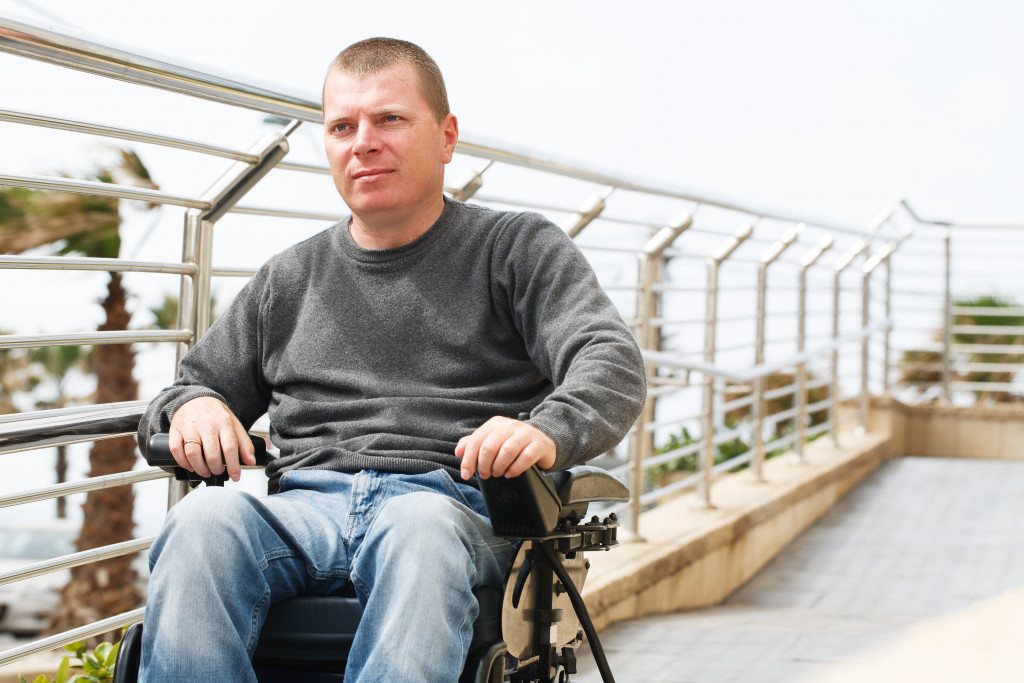- Research the destination ahead of time to ensure it can cater to your specific needs
- Look into government programs and local organizations that could assist.
- Significant challenges include coping with culture shock, finding employment opportunities, and language barriers.
- Taking care of yourself, finding a support system, and trying local activities can make adjusting easier.
- Research government programs and organizations to help with employment.
Living with a disability in another country can be an intimidating prospect. It often means adjusting to a new culture, language, and lifestyle while managing the challenges of your disability.
But it doesn’t have to be a daunting experience – many people have successfully navigated this journey and gone on to lead fulfilling lives abroad.
This article will explore the unique challenges faced by those living with disabilities in other countries and provide advice for making the transition as smooth as possible.

Researching Your Destination
Before you make the big move, it’s crucial to research your destination ahead of time to ensure it can cater to your specific needs. Research the healthcare system, disability rights and accommodations, transportation, and employment laws. Doing this will help eliminate any surprises that may come up after you arrive.
Government Programs
In many countries, government programs aim to assist those with disabilities. These programs can provide essential resources, such as financial aid, housing assistance, and access to specialized medical care.
For instance, if you plan to get permanent residency status in Australia, you should look for a reputable company offering a reliable NDIS plan management service. The plan provides funding for disabled individuals to find new jobs or participate in leisure activities.
Organizations or Programs
Additionally, look into any local organizations or programs that could assist. You may even want to reach out to members of the community who are familiar with the area and can provide you with useful information.
Coping with Culture Shock
Another significant challenge when living in another country with a disability is dealing with culture shock. Culture shock can come in many forms, including different attitudes toward disabilities.
Support System
It’s essential to have a support system to help you cope with culture shocks, such as family, friends, or a disability support group. It’s also vital to remember that everyone experiences culture shock differently and that it’s completely normal to go through a period of adjustment.
Opportunities
Taking advantage of the opportunities available in your new culture is also essential. Participating in festivals, visiting cultural sites, and trying local food are all great ways to learn about a different culture and make adjusting easier.
Self-Care
Finally, don’t forget to take care of yourself! Spend time with people who make you feel comfortable and appreciated, find activities that bring you joy, practice self-care techniques like meditation or yoga, and don’t be afraid to reach out.
Overcoming Language Barriers
It can be an additional struggle when navigating life with a disability if you’re moving to a country where the primary language differs from yours. Learning the language or finding someone who can help you with translation services is essential.
Prevent Access
Language barriers can prevent you from accessing healthcare, education, or even employment, so consider learning the language before you make a move or getting help from translation apps or services.
Additionally, make sure any healthcare providers you visit are aware of your language needs. They can help ensure staff members who speak your language are available. Finally, consider attending a disability-related support group in the native language; connecting with others with similar experiences can be invaluable during the transition to a new country.

Finding Employment Opportunities
Finding employment in a new country can be a daunting challenge for anyone and even more challenging for people with disabilities. Many countries have complex laws and regulations around disability, which can make the employment process more complicated.
Research Opportunities
It’s essential to research the employment situation and determine if any organizations are dedicated to helping people with disabilities find work. You can also search for companies promoting workplace diversity and inclusion.
Government Assistance
Some countries have government programs specifically designed to assist people with disabilities in finding meaningful employment. It’s important to research the different options available to determine which ones are best suited for you and your situation. Additionally, many organizations offer job placement services and career counseling for people with disabilities.
In conclusion, living with a disability in another country can be a daunting challenge. But it’s essential to remember that you’re not alone. You can thrive in a new country with some research, a support system, and determination. With a positive attitude and perseverance, you can embrace the challenges and accomplishments of living with a disability in another country.

